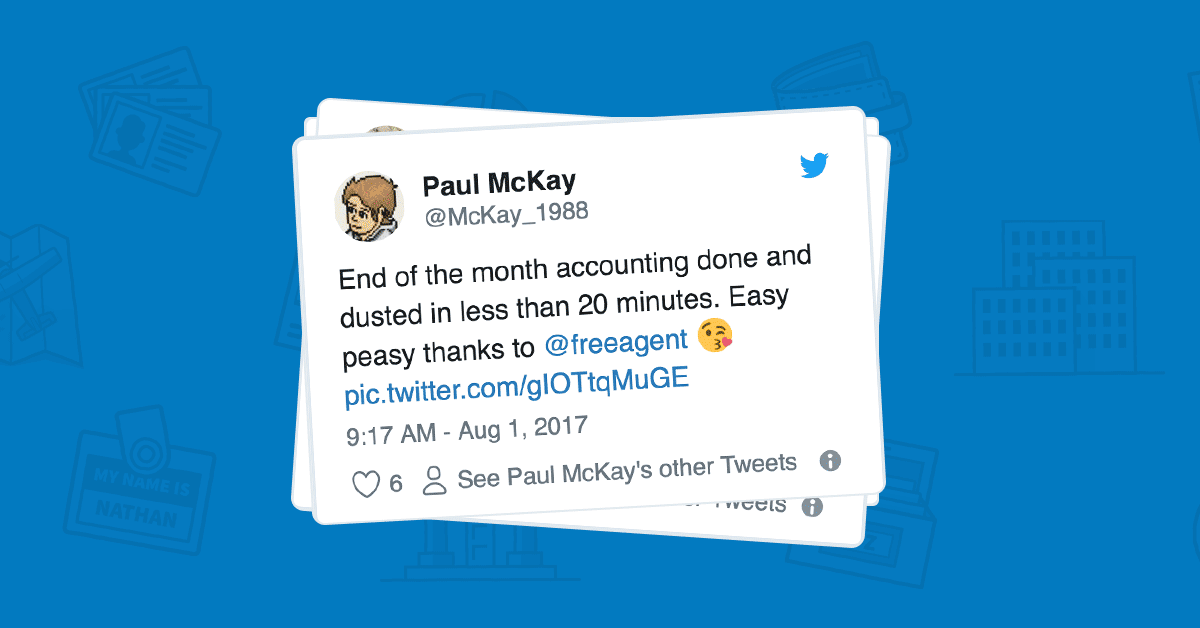Anna Debenham is a Freelance Front-end Developer living and working in London in the UK. She works with a range of clients to help build front-end prototypes, style guides and websites. In 2013, She was awarded Netmag's Young Developer of the Year.
I really hate asking for money. Maybe it’s because I’m British, or that I find it weird that people are paying me money for doing something I enjoy doing, but sending and chasing up invoices is one of my least favourite things about running a business.
Getting paid is also the point where many people in our industry run into trouble - FreeAgent’s research (1) found that 97% of UK designers and developers have been paid late by clients, and 20% had to write off more than £1,000 for work they had completed. Between the awkwardness of asking for money and the uncertainty of actually getting paid, invoicing can sometimes feel like a perfect storm.
Over the years, I’ve refined an invoicing process that helps protect me from non-payment and also reduces the awkward step between doing the work and getting paid. Here’s how it works:
Before you start working
To weather a storm, you need to make sure that your shelter is solid, and this means doing some preparation to make sure an unexpected gust of wind doesn’t blow everything down and leave you shivering.
Credit checks: With over half of small UK businesses not surviving the first 5 years of business (2), it’s important to make sure that the organisations you rely on to pay your bills are… well… going to be able to pay your bills. A quick way of assessing this is to check their credit score - in the same way that you can check your own credit score, you can also check another company’s. There are a few online services you can use to do this like checkbusiness.co.uk and companycheck.co.uk. Most ask for a small fee, but it’s often a price worth paying if it saves you money further down the line. Payment terms in your contract: To make sure that you and your client are on the same page before work starts, you should include a section in your contract (you do use one, right?) about payment terms. There are a few important things you probably want to specify, such as:
Whether you’re asking the client for any retainer/deposit before you start working
If your project isn’t fixed cost, whether you’re going to bill them for days booked that they don’t end up using
Whether the amount you’re billing is inclusive of VAT
What currency you’re billing them in (particularly important for overseas clients)
What format of payment you accept (see note about payment methods)
At what point you will send them an invoice
What you agree to deliver before and after the final invoice is paid (some freelancers will only make the site live once final payment has been made).
How many days before that invoice goes overdue
What you will do if that invoice goes overdue (3)
It’s important that your client understands and properly acknowledges these terms because money is so often the thing that causes disputes.
Note about payment methods: A while ago, I had a couple of clients who insisted on paying cheques. This is less common now, but it was a real pain to queue at the bank and pay them in, and there was also a higher fee on my account for paying in a cheque as opposed to a bank transfer. My payment terms now insist on paying by BACS (bank transfer). If I ever get a client who wants to pay me a cheque again, I can put in the payment terms that I’ll have to charge them a small fee to cover my costs of paying it in.
Payment terms and when to invoice
By default, I want clients to pay me within seven days of receiving my invoice, but it’s quite rare I can implement that; after some negotiation, my payment terms often end up being 14 days, which is still better than the usual 30. Larger companies have accounting departments that insist on 30 days, and they won’t budge on this, so you might need to make a concession. This does make cash flow more of an issue, so if you’re in this situation, you could ask to invoice at the end of every week rather than every month so you have a more consistent flow of income. Invoicing (and thus getting paid) regularly will balance out those nerve-wracking feast and famine spikes.
Writing the invoice
First, let’s cover the essentials. UK invoices must include the following (4): The word “invoice” clearly displayed
Your company or trading name, with your address and contact details
The name and address of the company that you’re invoicing
A unique invoice reference (details below)
A summary of the work you’ve done
The date(s) that you provided the work
The amounts you’re charging for each piece of work
The VAT amount you’re charging (if applicable - more on VAT below)
The total amount due
Sole trader invoices: If you’re a sole trader, the invoice must also include:
Limited company invoices: If your company is a limited company, you must include the full company name as it appears on the certificate of incorporation.
If you decide to put names of your directors on your invoices, you must include the names of all directors.
VAT invoices: If you are registered for VAT, there are quite a few more things that you need to include on your invoice. All of the requirements are here As well as these essentials, here are some tips:
Payment details: Don’t forget to put your payment details on your invoice so your client can pay you straight away - this includes the name of your bank, your account number and sort code if you’re accepting BACS payments, or your PayPal details if you’re using that.
Payment terms: It’s also important to add the due date so your client can see when the payment needs to be made by.
Summary of work: Your summary should be really clear so the client knows exactly what they’re paying for. In FreeAgent, I hook my invoices up to my timesheets so I can show details of what I did each day I was working on the project.
Project references: Some clients ask you to include a PO (purchase order) number or the project owner’s name so that their accounting department can see what it applies to.
International payments: Since working for international clients, I’ve also added my BIC (also known as SWIFT or SWIFTBIC) and IBAN. These are needed to make international payments. Even if you don’t currently have international clients, it’s good to ask your bank for these details now so you have them to hand if you need them.
Invoice references: Invoice references need to be sequential, but if you’re just starting out, it may look unprofessional for your first invoice to be numbered 001. One option is to start with a random number to make it look like you’ve been on the block for longer, or you can give each client their own reference (Widgets Incorporated would be WI001, WI002, and Acme Corp would be AC001, AC002).
Sending the invoice
I used to hand-craft an email to my client every time I sent an invoice, but that would often put me off sending the invoice in the first place because I couldn’t think of anything to say other than a long, awkward version of “Uh, hi! Here’s my invoice. Please pay it!”. So having a boring but to-the-point template email that accompanies my invoice makes the process a lot easier.
That said, I do customise these messages a little depending on whether I’m sending them directly to the client, or to their billing department. (I assume that the billing department doesn’t really care that I had a wonderful time working on the project and that I hope to work with them again soon).
If I’m sending an invoice to a billing department at the end of every week, I add the project name and reference in the subject so it’s easy to see what it refers to, and just add a short note explaining what period the work I’m billing is for. This hopefully makes their jobs easier as they don’t have to chase up the project owner for more details.
Subject: [project_name], invoice [reference]
Hi,
I've attached my invoice for the work I’ve done on [project_name] in the week ending [invoice_date].
Kind regards,
Anna
If I’m sending my invoice directly to the client I’ve been working with, I tend to be more informal. And if it’s a one-off piece of consultancy and I enjoyed working with them, I ask up front for more work.
Subject: invoice [reference]
Hi [contact_first_name],
I've attached an invoice for the [project_name] work I did with you. It was a really fun project, and I hope you'll ask me back in a couple of months to review what you've been working on.
Kind regards,
Anna
Chasing overdue invoices
If an invoice goes overdue, I send a short email a couple of days later to prompt the client (avoid sending it last thing on a Friday, it will inevitably get lost).
I like to say “this is an automated reminder” even if I send it manually, so it looks less like I’m personally chasing them up, rather that my system is.
Subject: Invoice reminder: [reference]
This is an automated reminder to let you know that invoice [reference], sent [invoice_date], is now overdue. If you've already paid this invoice, please let me know as there may have been a problem with the transfer.
If it’s still overdue a couple of days after that, I send another email:
Subject: Invoice [reference] overdue
Hi [contact_first_name],
I’ve just been going through my accounts and I noticed that invoice [reference] is showing up as overdue. Could you have a look into this?
If the invoice is still unpaid in 3 days, my system will start charging the base rate of interest on top of the total amount due.
Let me know if it’s already been paid so I can chase it up with my bank.
Kind regards,
Anna
Again, I’m referencing “my system”. I don’t want to be too personal, not yet. Usually it’s just someone being a bit forgetful, or there’s some paperwork that needs signing off first, and a gentle prod is all that’s needed.
Chase early, chase often: I send my chasing emails once the invoice is only a couple of days overdue. I’ve found that I’ve had the biggest problems with payment when I’ve only started chasing up an invoice several weeks after it’s gone overdue, so I recommend you chase up early and often.
When they don’t pay
I’ve been very lucky with getting paid on time, and only had a couple of times where an invoice has gone significantly overdue, and one that I’ve had to write off. In one case, I was on a long-term contract and I told the client I would suspend working for them until all my payments were up to date, which was enough to get all the outstanding payments made.
If things really turn sour, you can hire a mediator who will attempt to settle a dispute out of court, or you may opt to take your client straight to the small claims court – sometimes just the threat of doing this is enough to settle a bill. Fortunately, I’ve never had to do this with a client, but it’s an option if multiple reminders are being ignored, and you’re not keen to maintain a positive relationship with them.
Another alternative is to sell the debt. This means that a debt collection agency will attempt to collect the money from the client themselves, such as by sending in bailiffs. A handy option if you’re desperate for the money.
If the overdue bill is small enough, or you know there’s very little chance you’ll be able to recover the money (such as if the client goes bankrupt), you may decide to cut your losses and write off the debt. This means you accept that the payment is never going to be made, and it gets recorded in your business accounts as an expense.
The ideal situation is to not have an invoice go overdue for any work you’ve already done. Some freelancers insist on being paid up front for all the work they do. They will invoice the client every week for the following week’s work, and if an invoice goes unpaid, they don’t do the work. The client is effectively paying to book in that person’s time.
It’s not always possible to negotiate this for the entirety of a project, but it’s not unusual to ask for a deposit before starting a new project, especially if you’re paying expenses like travel or accommodation up front. After all, it’s one thing if a client doesn’t pay on time for your services, it’s another if it’s for expenses.
Be proactive and get into a routine
I think that the most important part of invoicing is to set up a process that helps you get ahead of any problems that you may weather down the line. In particular, a good weekly invoicing routine to prevent potential cash flow problems and a few pre-written emails that you can confidently use to chase payment can make a big difference to helping you get paid.
Research carried out among 100 UK web designers and developers running businesses with 1-5 employees. Commissioned by FreeAgent and carried out by DJS Research Ltd. ↩ You can charge statutory interest on late paying invoices which is 8% plus the Bank of England base rate, and there’s an excellent article on GOV.UK about how to calculate this) ↩ Guide to invoicing and taking payment from customers from gov.co.uk ↩






